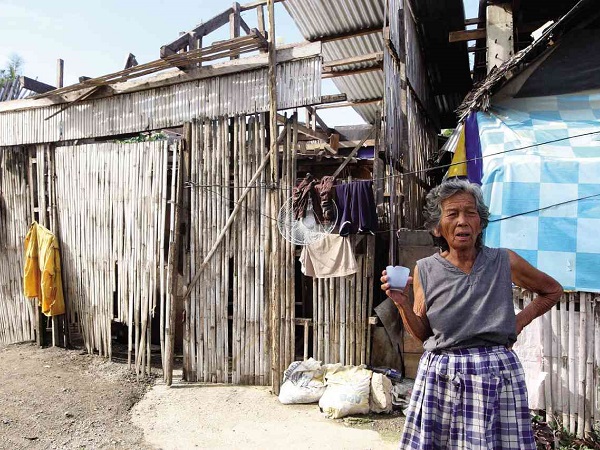Cyberporn thrives, along with poverty

LOCAL officials blame poverty for the operation of cyberpornography in some of the households in Cordova town, Cebu. Tonee Despojo / Cebu Daily News
CEBU—As agents of the National Bureau of Investigation were raiding a house suspected to be a front for cyberpornography in a poor neighborhood in Cordova town in Cebu on May 26, a text message was being circulated, telling residents to switch off computers and Internet devices.
The illegal trade has been public knowledge in Sitio Sung-ok in Barangay Ibabao, according to village treasurer Julbert Ventulan. Several residents lured by easy money have been involved in cyberpornography, he said.
A man and his wife were arrested by the NBI team for telling their own daughter, a 13-year-old, and two others aged 14 and 17 to perform lewd acts in front of a webcam for foreign online viewers. Both are now facing charges in court.
At least 15 more families in Ibabao are believed to be into home-based cyberpornography.
The May 26 raid was the second in Sung-ok. In June 2011, a couple was arrested for making their three children, niece and two other minors perform naked in front of a webcam mounted on a computer. They were charged with qualified human trafficking.
The following month, in nearby Barangay Cogon, lawmen raided a house that was being used by a woman as a studio to let her young daughters and a cousin strip and dance for online clients.
“Cyberporn is not happening just in Cordova but also in other places,” said Antonio Pagatpat, NBI director for Central Visayas.

THE HOUSE of a couple who operated a home-based cyberpornography in Barangay Ibabao in Cordova town has been closed following a raid by the National Bureau of Investigation in Central Visayas. LITO TECSON / Cebu Daily News
Poverty
Provincial and town officials are citing poverty as the reason parents have completely disregarded their moral obligations and pimped their own children to foreigners.
Cordova on Mactan Island, 22 kilometers from Cebu City, is a fifth-class fishing municipality with a yearly income of a little over P10 million, according to the website of the Department of Trade and Industry. Unemployment rate was put at 40 percent.
Mayor Adelino Sitoy said 10-15 percent of the population were poor. “We will look for ways to help them,” he said.
Some households earn P100 a day from producing “helba,” a rope used in furniture and house décor.
A 20-year-old Ibabao resident, who identified himself only as Mike, said poverty had pushed his neighbors to engage in cyberpornography. “The money is easy,” he said.
“Many of our neighbors are poor. The neighborhood is crowded … many would just hang around since they don’t have jobs. They always drink, gamble and play cards and mahjong,” he said.
Mike’s parents themselves do not have jobs, but he managed to get himself a scholarship from a local university.
Easy money
According to Ventulan, the barangay official, holding a cyberpornography session allows residents to net from P3,000 to P30,000, depending on the kind of performance offered to clients.
Parents use their children because some foreign customers would pay more if the performers were young children, he said.
Payment is usually through overseas money transfer services, he added.
Ventulan said he didn’t know exactly what the foreigners would ask the children to do, but some customers had sent sex toys to cyberpornography operators as props.
The barangay tried to help those involved in the illegal trade by encouraging them to attend a three-day counseling session at a resort in Cordova, he said. Some changed, but others went back to their old ways, he added.
Livelihood
Acting Gov. Agnes Magpale, who cochairs the Provincial Women’s Commission, said that in confronting the problem of cyberpornography, poverty in the community should be addressed first.
Livelihood seminars in Ibabao and other depressed villages will be conducted to give the women opportunities to earn a decent living, Magpale said. “Since Cebu is a tourist spot, we would teach them how to massage and make bags,” she said.
To make them get through the day, she said the province would provide rice to poor families.
Sitoy said the Cordova municipal government would hold parent-teacher association meetings in schools to educate the parents and call on the Department of Education to initiate a campaign against cyberpornography.
Magpale acknowledged that the livelihood programs are no match to the dollars that cyberpornography operators get per session.
“But we are doing our best to solve the [problem]. We’re not giving up,” Magpale said.